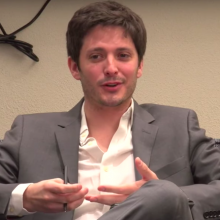Civility, Self-Censorship, and the Freedom of Expression
January 24, 2020
Norms of civility restrict what one can say and when one can say it. Put differently, being civil requires a measure of self-censorship. So understood, perhaps recent claims that civility is no requirement of morality (or that only a very thin form of civility is so required) are good news for free expression. Unfortunately, these skeptical arguments against civility are subject to stiff empirical challenges. Messina argues that some measure of self-censorship is morally required, but that this is compatible with the ideals of free expression and the good life.


Dr. J.P. Messina
Assistant Professor of Philosophy, University of New Orleans